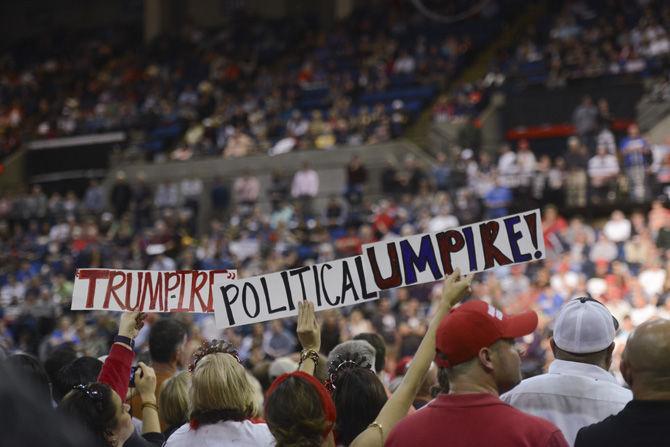This year’s presidential election can be summed up with one phrase: hot mess.
Instead of discussing policies and issues, Donald Trump and Hillary Clinton used their three presidential debates to spar over how untruthful the other is.
The back and forth of “did they?” “did they not?” has put real-time fact checking at the front-and-center of debate coverage for news organizations More often than not, Trump seems to run into trouble with fact-checkers. Comments Trump makes during the debates are often contradicted by his own previous statements or a tweet.
Trump’s Twitter account and the years of rants in its archives have provided journalists with ample ammunition to disprove some of his more recent statements.
Should journalists be able to bring up prior public statements made on platforms like Twitter when a candidate speaks out on an issue? Absolutely.
During the Democratic primary, this was a key complaint Bernie Sanders’ supporters raised against Clinton. She’s pulled a 180 on multiple issues over the years, including same-sex marriage, the Keystone Pipeline and the Invasion of Iraq, to name a few.
Sanders’ supporters said Clinton’s flip-flopping was an indication she was not trustworthy, which is a valid concern.
When political candidates offer a stance on an issue that contradicts their prior statements, they should be questioned about it. Candidates should have to explain their reasoning behind the change.
On a more local level, Student Government president Zack Faircloth recently tried to backtrack on comments he made during last spring’s SG debate.
At the debate, Faircloth said he would support Hillary Clinton over Donald Trump if they were the two nominees. Recently on Twitter however, Faircloth claimed, “I did not say I’d support Clinton.”
Yet live tweets from a Reveille reporter, then-SG Director of Organizational outreach, several audience members and the Twitter account for Faircloth’s campaign all suggest he did, in fact, say he’d support Hillary Clinton over Donald Trump.
As an elected official who represents students on LSU’s Board of Supervisors and at the state Legislature, Faircloth should be held accountable for his prior statements, including those which may be detrimental to the political future he may have in mind.
We’re living in the digital age, y’all. Fact-check yourself before making claims. If not, don’t be surprised when someone calls you out for intentionally misleading voters.
John Gavin Harp is a 21-year-old mass communication senior from St. Francisville, Louisiana.
Opinion: Voters should care about flip-flopping politicians
October 25, 2016






